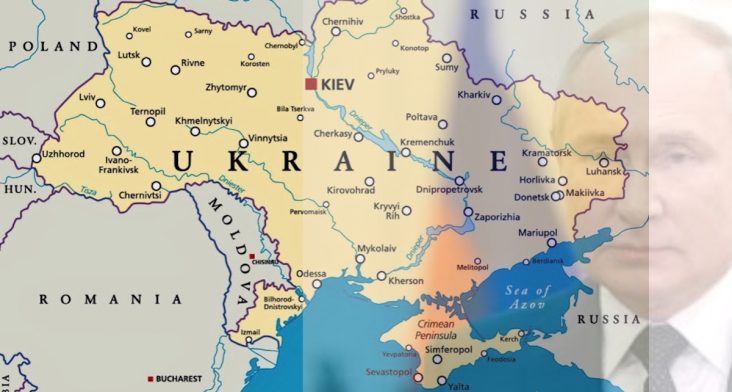General Clark shares commentary on Ukraine-Russia war with Donaghey Scholars
by March 1, 2023 2:51 pm 3,026 views

General Wesley K. Clark, former Supreme Allied Commander of NATO, explained the current situation in Ukraine to a group of Donaghey Scholars at UA Little Rock on Tuesday (Feb. 28).
Before explaining what is happening with Ukraine and Russia, Clark set the stage by giving an overview of the history of America and the Soviet Union.
Clark said after WWII, an advantageous environment was created for Joseph Stalin, former premier of the Soviet Union, since the U.S and its allies had demobilized after the defeat of Adolf Hitler and the German Nazis.
“By 1949, we realized we had a big problem with Russia, the Soviet Union,” Clark said.
Clark said with the U.S having nuclear superiority and with the death of Stalin, there was a sense the Soviet Union would collapse.
He added there was a brief moment of peace until the turn of the century. Clark said the rise of China and Putin’s consolidation of power ended that.
“We’re still the most powerful nation in the world,” he said, however, Clark added the U.S has made mistakes in the Middle East and with Russia.
Clark said the U.S underestimated Putin when he initially came into power and continued to misjudge him.
“He made speeches. He said, ‘We don’t like the West, you people exploit us’ and well we did some exploitation. We looked down on them and he [Putin] felt it personally,” Clark said.
In 2014, Clark said Ukraine’s interest in joining NATO began. He explained Ukraine saw Poland, which is similar in size to Ukraine, become two to three times wealthier than them and that led to their attempts to join NATO.
“This was Putin’s nightmare. He knew if he lost control of Ukraine, he could never reconstruct the Soviet Union. Without Ukraine, he could never confront China and that is the historic Russian fear,” Clark said.
Clark explained Russian leaders have always feared China because in the 1800s Russia expanded into Siberia, which required taking land from China.
“They took it and Putin knows China is going to want it back. When China says ‘We’re going to be an arctic nation’ they’re not talking about sailing a couple of icebreakers up the Bering Strait,” he said.
In 2014 when Ukraine tried to break away from Russia, Clark explained that paranoia drove Putin to use force to take Crimea from Ukraine.
According to the U.S Department of State archives, then President Barack Obama signed an executive order to sanction Russia as a response to the annexation of Crimea.
Going forward, Clark said the U.S is in a dilemma since it has to deal with the Russia-Ukraine situation, while also worrying about China, which has shown signs of aggression toward Taiwan.
He added it is hard to tell when there could be an end to the war in Ukraine.
“Ukraine says it will fight to the end. Putin says he could use nuclear weapons. The United States says we don’t want World War III, we don’t have nuclear superiority and anyway the big threat is China,” Clark said.
Clark said with Russia being unable to take over Ukraine and with Ukraine being unable to reclaim Crimea, it will be difficult for the war to come to an end. He added it will be difficult to negotiate with Putin.
“What he [Putin] wants is a ceasefire so he can rebuild his army so he can finish the job,” Clark said. “What Ukraine wants is to be part of the European Union, so it’s got a security barricade and that’s what France and Germany don’t want.”
Clark explained the Biden administration is in a difficult situation being in the middle of all of this.
According to a press release by the Department of Defense, the United States has given $24.9 billion in aid to Ukraine, under the Biden administration. Sanctions led by the United States and its allies have immobilized about $300 billion worth of Russian Central Bank assets, according to the U.S Department of State.
